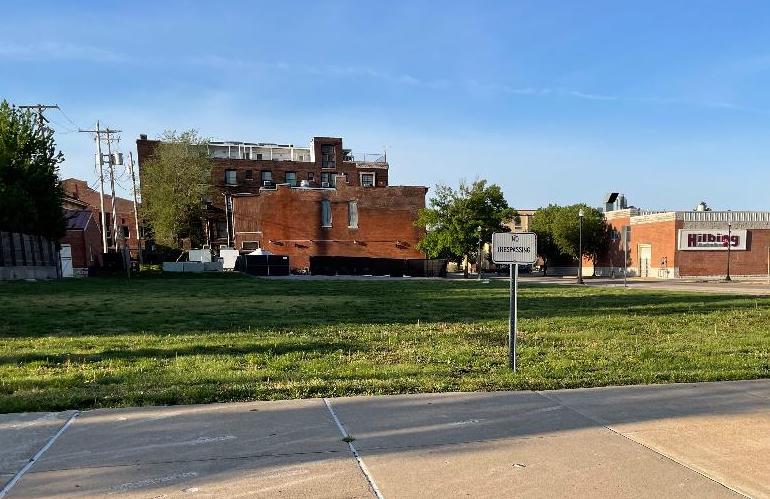Land bank to help get delinquent properties in Quincy back on tax roll, avoid fix-or-flatten

QUINCY — The Two Rivers Land Bank, approved by the Quincy City Council on April 26, is designed to help find buyers for blighted properties for which owners are no longer paying taxes.
“Our city’s goal is to have these properties get purchased before they get to the fix and flatten level,” city planner Chuck Bevelheimer said. “That’s where we deal with the worst of the worst. What we hope to do (with the land bank) is investigate these properties before they get to that level and acquire them before they get too bad.”
Bevelheimer has said many times over the years that the city doesn’t want to get into the real estate business, but their hand has been forced in some cases. One prime example is the vacant lot at 4th and Maine (pictured to the left), which was the home to the Newcomb Hotel before it was demolished following a September 2013 fire.
The land bank will be under the direction of Chad Frederick, community development director for Two Rivers Regional Council that covers intergovernmental agreements between Adams, Brown, Pike and Schuyler counties.
Frederick believes Adams County, Morgan County and the city of Jacksonville will join the land bank later this year. Morgan, Scott and Cass counties are part of the seven-county economic development region that also encompasses the Two Rivers area.
A $200,000 Strong Communities grant through the Illinois Housing and Development Authority provides seed money for any properties the land bank acquires in Quincy.
Teska Associates, a landscape architecture firm in Evanston, did a feasibility study last year to evaluate whether western Illinois could sustain a land bank. The study, paid for by the Land Bank Capacity Program of the Illinois HDA, concluded that Quincy alone has about 1,900 vacant housing units.
Bevelheimer says the city often is offered properties that people no longer want to maintain.
“The land bank would be the perfect entity,” he said. “When someone calls me up and says, ‘Hey, I want to get rid of my property. Would you be willing to accept the deed?’, the land bank would take it. Now, most of these properties aren’t in great shape. Many of the buildings are open and dangerous, and they are unsafe to the public, but you understand that going in.”
Instead of the city taking care of those properties, the land bank would intercede and make them marketable again.
Bevelheimer believes the land bank could acquire as many as two dozen properties in the next year. The study estimated that number to increase to more than 40 by its fifth year. The land bank could maintain those properties, possibly do some minor repairs and then try to sell them.
“In some cases, it might cost us $5,000 to purchase the property, and then we could later sell them for $10,000 or $20,000,” Frederick said. “We just want to get these properties back on the tax roll. Those are the kinds of places we want to go after first. Fix or flatten doesn’t help get any properties on the tax roll. We want to get these properties before they have no value left.
“The main reason the land bank is a positive for the area and the region is that it’s able to take on what needs to be done and the problems that exist without the city or the county having to add extra manpower to handle it.”
Miss Clipping Out Stories to Save for Later?
Click the Purchase Story button below to order a print of this story. We will print it for you on matte photo paper to keep forever.

